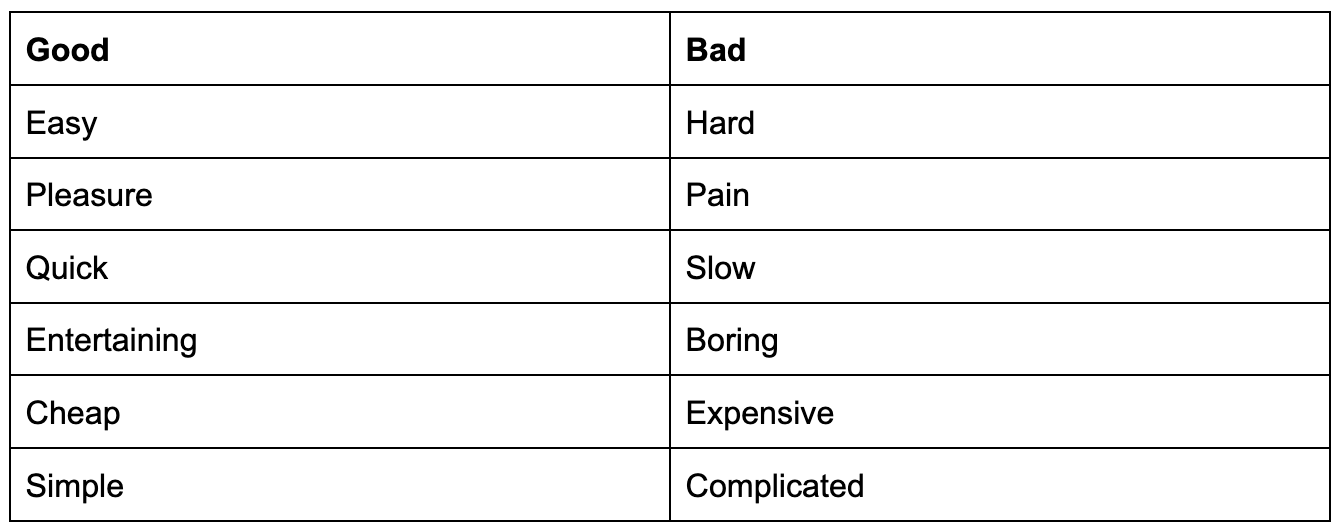What is true goodness and where does it come from?
Podcast: Play in new window | Download (Duration: 20:12 — 38.0MB) | Embed
When my family and I first moved to Ukraine many years ago, people on both sides of the ocean were shocked by our decision. In the U.S., I had a successful business, and it seemed like life was going well. “Why move to Ukraine when things are good for you here?” they asked. When we arrived in Ukraine, the reaction was similar: “Why did you come here? Isn’t it better in the U.S.?”
These questions reflect a broader issue: our decisions often depend on our definition of “good.” But how do we define good? It might seem simple, but most people don’t consciously think about it. We assume everyone instinctively knows what is good and what is bad. However, our definitions of good and bad often revolve around personal experiences and circumstances. We think if life is easier, if we have more money, if we avoid hardships, then we are experiencing goodness.
Defining Goodness
We tend to define “good” in terms of personal benefit, pleasure, and happiness. Conversely, we view things that cause hardship, pain, or require sacrifice as “bad.” If we look at life this way, we might categorize:

Most of us would agree that the list on the left looks “good” or at least better than the list on the right. However, this definition of good is based solely on individual experiences, which can be misleading and problematic.
Rethinking Goodness
Let’s consider a different perspective. Is it good to be in a place where missiles are flying, bombs are landing, and lives are being lost? According to our initial paradigm, the answer would be “no.” But what if there’s another way to define good, a way that comes from something greater than ourselves?
It’s crucial to define goodness correctly because it determines our direction in life. Here, the Bible offers clarity on what true goodness is.
“He has shown you, O mortal, what is good. And what does the LORD require of you? To act justly and to love mercy and to walk humbly with your God.” Micah 6:8 (NIV)
The prophet Micah provides a vital paradigm for understanding true goodness—one that is independent of our personal experiences and rooted in God’s perspective.
The Source of Goodness
Before we understand true goodness, we must recognize its source. True goodness comes from God Himself. It can never exist outside of God’s moral design for our lives. Ultimately, true goodness is not a matter of circumstances but an issue of the heart. Without connecting to the only source of true goodness—God—we are on a never-ending, disappointing chase after an illusion of happiness and contentment.
False Goodness
We often mistake false goodness for true goodness. False goodness is the belief that we can find true goodness within ourselves or in our circumstances. It promises quick, cheap pleasure and tells us we deserve it. It’s not necessarily about sinful things but about the misguided focus that this product, activity, or moment will bring goodness into our lives. False pleasure is fleeting and leaves us more unsatisfied than before.
True Goodness from God
1. God is the source of goodness
The Bible begins by highlighting God’s goodness. Genesis 1 repeatedly states that God’s creation was “good.” This goodness testifies to God’s wisdom, beauty, and power. All good things in life—good sleep, food, families—are gifts from God (James 1:17-18).
2. God’s rules are good
Acting justly, loving mercy, and walking humbly with God are central to experiencing true goodness. Obeying God’s commandments brings purity, holiness, and righteousness into our lives, making life pleasant and purposeful (Psalm 19:8-10).
3. Goodness is an issue of the heart
To love mercy is to embody one of God’s main characteristics. Mercy and justice might seem contradictory, but they coexist in God’s nature. Justice relates to how we live before God, while mercy relates to how we live with others. A merciful life is a good life, as it reflects the mercy we receive from God (Psalm 5:7-8).
4. True goodness is found in relationship with God
Walking humbly with God means seeing ourselves through His eyes—imperfect and in need of His strength. Without humility, we cannot walk with God. True humility acknowledges our need for God’s mercy and strength (Matthew 11:29-30).
Conclusion
Where are you looking for goodness? True goodness must be based on God Himself, not our experiences. Look to God and seek a genuine relationship with Him. Follow His law and live by it.
Questions for Discussion
1. What are some “false goods” that are common today?
2. How can your definition of good affect your life?
3. What can we do to change our perspective on what is good and what is bad?
4. How is God’s goodness different from the world’s goodness?
Reflect on these questions and strive to align your definition of goodness with the one shown in Micah 6:8. This divine perspective will lead you to true and lasting goodness.
Podcast: Play in new window | Download (Duration: 20:12 — 38.0MB) | Embed










